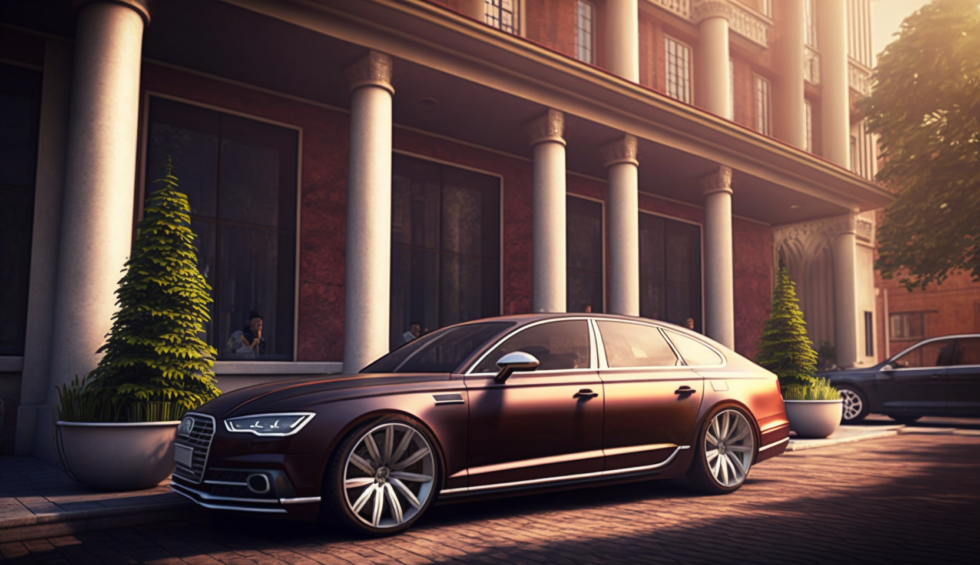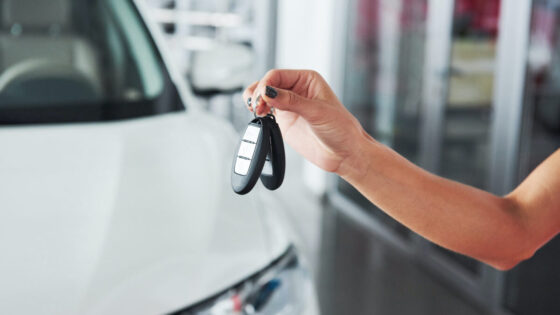Exploring the Pros and Cons of Leasing a Car: Is it a Good Option for You?

Are you in the market for a new car and wondering if leasing is the right choice for you? Leasing a car can offer several benefits, such as lower monthly payments and the ability to drive a new car every few years. However, there are also potential drawbacks to consider, such as mileage restrictions and additional fees. In this article, we’ll explore the pros and cons of leasing a car, financial considerations to keep in mind, and whether a lease with the option to buy is a good alternative. We’ll also take a closer look at the current state of car leasing and what the future may hold.
Leasing a Car
Before we dive into the pros and cons of leasing a car, let’s first define what car leasing is and how it differs from buying a car. When you lease a car, you’re essentially renting it for a set period, typically two to three years. At the end of the lease term, you return the car to the dealership or have the option to purchase it for a predetermined price. When you buy a car, you own it outright and can keep it for as long as you like.
There are two types of leasing options: closed-end and open-end. Closed-end leasing, also known as “walk away” leasing, is the most common type of leasing. With this option, you return the car at the end of the lease term, and the dealership assumes the risk of the car’s resale value. Open-end leasing is typically used for commercial vehicles and involves the lessee assuming the risk of the car’s resale value at the end of the lease term.
Benefits of Leasing a Car
One of the most significant advantages of leasing a car is lower monthly payments. Since you’re only paying for the car’s depreciation during the lease term, rather than its full value, your monthly payments are typically lower than if you were to buy the car outright. Leasing also allows you to drive a new car every few years, which can be appealing for those who like to have the latest technology and features. Additionally, leasing offers flexibility at the end of the lease term, as you can choose to turn in the vehicle or purchase it for a predetermined price.
Another benefit of leasing is the option to lease a car with the latest technology. If you’re someone who always wants the latest features in your car, leasing can be a good way to ensure that you always have access to the newest tech. Leasing can also be a good option for those who can’t afford to buy a new car outright, as the upfront costs are typically lower than if you were to buy the car.
Here are the bullet points:
- Lower monthly payments than buying a car outright
- Ability to drive a new car every few years
- Flexibility at the end of the lease term to turn in the vehicle or purchase it for a predetermined price
- Option to lease a car with the latest technology and features
- Lower upfront costs than buying a new car outright
Drawbacks of Leasing a Car
- Leasing a car has its drawbacks as well, and it’s important to consider these before making a decision. Here are some of the main drawbacks of leasing a car:
- Mileage Restrictions and Potential for Additional Fees: Most lease agreements come with mileage restrictions, which means that you can only drive a certain number of miles per year without incurring additional fees. If you go over the mileage limit, you will be charged a fee for each additional mile. This can be a significant expense, especially if you drive a lot or have a long commute.
- Not Owning the Car at the End of the Lease Term: When you lease a car, you are essentially renting it for a set period of time, typically 2-4 years. At the end of the lease term, you must return the car to the dealership. This means that you do not own the car and do not have any equity in it.
- Potential for More Expenses in the Long Run: Leasing a car can be more expensive in the long run compared to buying a car. When you lease a car, you are essentially paying for the car’s depreciation during the lease term, as well as fees and interest. This can add up to a significant amount of money over time.
- May Not Be the Best Choice for Those Who Put a Lot of Miles on Their Vehicle: If you drive a lot, leasing a car may not be the best option for you due to the mileage restrictions and potential for additional fees.
- Limited Customization Options: When you lease a car, you may not have the same customization options that you would have if you owned the car. You may not be able to add aftermarket parts or make modifications to the car without voiding the lease agreement.
Here is a table summarizing the potential benefits and drawbacks of car leasing:
| Benefits of Car Leasing | Drawbacks of Car Leasing |
| Lower monthly payments | Limited customization options |
| Driving a new car every few years | Mileage restrictions may apply |
| Lower down payment | Additional fees for early termination |
| Warranty coverage during lease term | Potential for excess wear and tear fees |
| No need to worry about selling or trading in the car | Required to maintain insurance coverage |
It’s important to note that these benefits and drawbacks may vary depending on the individual lease agreement and the consumer’s specific needs and circumstances. It’s also important to carefully read and understand the lease agreement, including any potential fees or penalties for early termination or excess wear and tear. By carefully weighing the pros and cons and doing your research, you can make an informed decision about whether car leasing is the right choice for you.
It’s important to take a comprehensive approach when considering whether to lease or buy a car, as there are many factors to consider. As writer and producer Ken Tremendous pointed out his problem on Twitter link
This statement highlights the importance of considering your long-term goals and needs when making a decision about whether to lease or buy a car. While leasing may offer lower monthly payments and the flexibility to drive a new car every few years, it’s important to consider the potential drawbacks, such as additional fees and penalties for excess mileage or early termination. Ultimately, the decision to lease or buy a car should be based on a careful consideration of your budget, lifestyle, and future plans.
Financial Considerations of Leasing a Car
Leasing a car can have a significant impact on your finances, and it’s important to consider the following financial factors before making a decision:
- Impact of Credit Score on Leasing a Car: Your credit score plays a significant role in determining whether you are eligible to lease a car and what your lease terms will be. If you have a low credit score, you may be required to pay a higher interest rate or put down a larger security deposit. If you have a bad credit history but still need to lease a car this article may help you: link. If you don’t know if your credit score is enough to to lease a car this article may help you: link.
- Tax Implications of Leasing vs. Buying a Car: There are different tax implications for leasing a car versus buying a car. When you lease a car, you may be able to deduct some of the lease payments on your taxes, but you will not be able to deduct the full cost of the car. When you buy a car, you may be able to deduct the full cost of the car if you use it for business purposes.
- Importance of Financial Planning and Personal Budgeting for Leasing a Car: Leasing a car requires careful financial planning and personal budgeting to ensure that you can afford the monthly payments, fees, and potential additional expenses. It’s important to consider your current financial situation and future financial goals before leasing a car.
- Effect of Auto Industry Trends and Consumer Behavior on Car Leasing Rates: Car leasing rates can be influenced by factors such as changes in the economy, consumer behavior, and industry trends. It’s important to research current leasing rates and trends to ensure that you are getting a good deal.
- Early Termination Fees and Other Hidden Costs to Consider: If you need to terminate your lease early, you may be required to pay a significant fee. It’s important to read the lease agreement carefully and understand all of the potential costs before signing a lease.
Lease with Option to Buy
Lease with option to buy is a popular alternative to traditional car leasing that offers several benefits. One major advantage is that at the end of the lease term, you have the option to purchase the car at a predetermined price. This can be a great way to test-drive a car before committing to buying it, without having to make a large down payment upfront.
Another benefit of lease with option to buy is that the monthly payments are typically lower than with traditional leasing, as the residual value (the predicted value of the car at the end of the lease term) is often higher. Additionally, since you have the option to purchase the car at the end of the lease term, you may be more likely to take good care of it, which could save you money on maintenance and repairs in the long run.
However, there are also potential drawbacks to lease with option to buy. For example, if you decide not to purchase the car at the end of the lease term, you may be subject to additional fees or penalties. Additionally, if the car depreciates more quickly than expected, you may end up paying more than the car is worth if you choose to purchase it.
When deciding between a lease with option to buy and traditional car leasing, there are several factors to consider. For example, if you plan to keep the car for a long time, traditional leasing may be a better option, as you won’t be required to purchase the car at the end of the lease term. On the other hand, if you’re unsure if you want to commit to buying a car, a lease with the option to buy may be a good choice.
It’s important to read and understand the lease agreement before signing, regardless of whether you choose traditional leasing or lease with option to buy. Make sure you understand the terms and conditions, including any potential fees or penalties for early termination or excess mileage.
Is Car Leasing Dead?
The current state of car leasing is in flux due to several factors. One major trend is a shift in consumer behavior away from traditional car ownership towards alternatives such as ride-sharing and subscription services. Additionally, the COVID-19 pandemic has led to a decrease in demand for new cars, which has impacted leasing rates.
Despite these challenges, car leasing is still a viable option for many consumers. In fact, some automakers are offering attractive incentives to encourage leasing, such as lower monthly payments and reduced down payments. However, it’s important to do your research and consider all options before deciding whether to lease or buy a car.
One interesting perspective on car leasing comes from Twitter user @farzyness link:
This analogy highlights the key difference between leasing and buying a car: with leasing, you’re essentially renting the car for a set period of time, while with buying, you own the car outright.
While leasing may not be the best option for everyone, it can be a smart choice for those who prioritize lower monthly payments, flexibility, and access to the latest technology. Ultimately, whether to lease or buy a car is a personal decision that depends on a variety of factors, including your budget, driving habits, and future plans for the car. It’s important to carefully consider all of your options and read the lease agreement before making a decision.
When comparing car leasing rates in 2023 to previous years, it’s important to keep in mind that rates can fluctuate due to a variety of factors, such as changes in the economy and consumer demand. It’s also important to consider the potential benefits and drawbacks of car leasing, such as lower monthly payments but limited customization options and mileage restrictions.
In the future, car leasing may face additional challenges from government regulations aimed at reducing emissions and promoting electric vehicles. However, it’s likely that leasing will remain a viable option for consumers who want to drive a new car without committing to long-term ownership.
It’s important to research and consider all options before deciding whether to lease or buy a car. Make sure you understand the financial implications, including the impact of your credit score and any tax implications. By doing your homework and understanding the lease agreement, you can make an informed decision that fits your budget and lifestyle.
FAQ
Yes, you can negotiate the lease terms with the dealer, just like you would when purchasing a car. It’s important to do your research beforehand to know what a fair price would be and to understand all the terms and fees associated with the lease.
Yes, there may be tax benefits to leasing a car, such as being able to deduct the lease payments on your taxes if you use the car for business purposes. However, it’s important to consult with a tax professional to understand your specific situation.
Yes, you can end a car lease early, but there may be early termination fees and other costs associated with doing so. It’s important to read the lease agreement carefully and understand all the terms and fees before signing.
It depends on the lease agreement and the dealer. Some dealers may allow for customization, while others may not. It’s important to discuss any customization options with the dealer before signing the lease agreement.
It depends on various factors, such as the make and model of the car, the length of the lease, and the terms of the agreement. It’s important to do a cost comparison between leasing and buying to determine which option is best for your financial situation.
At the end of a car lease, you typically have the option to return the car to the dealer, purchase the car at a predetermined price, or lease a new car. It’s important to read the lease agreement to understand the specific terms and options available.
Your credit score can affect your ability to lease a car, as it can impact the interest rate and terms of the lease agreement. It’s important to have a good credit score and to understand how it can affect your leasing options.


